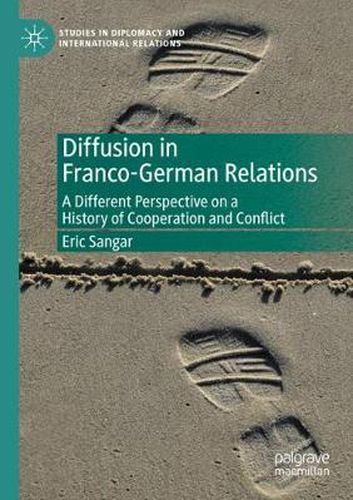Readings Newsletter
Become a Readings Member to make your shopping experience even easier.
Sign in or sign up for free!
You’re not far away from qualifying for FREE standard shipping within Australia
You’ve qualified for FREE standard shipping within Australia
The cart is loading…






This title is printed to order. This book may have been self-published. If so, we cannot guarantee the quality of the content. In the main most books will have gone through the editing process however some may not. We therefore suggest that you be aware of this before ordering this book. If in doubt check either the author or publisher’s details as we are unable to accept any returns unless they are faulty. Please contact us if you have any questions.
This book analyses and compares instances of the diffusion of political norms and ideas in the history of Franco-German relations. While this relationship is often described as a history evolving from enmity over reconciliation to friendship, the book uses the concept of diffusion as a complementary analytical perspective to emphasize how political norms and ideas originating in one society have influenced the other, especially in periods of intergovernmental conflict. Established in International Relations to explain transnational normative change in contemporary contexts, the framework of diffusion is heuristically useful to explore how various types of actors have contributed, using analytically different mechanisms, to normative change across the Rhine. The book presents eight case studies featuring various contents and mechanisms of ideational diffusion taken from three contexts of Franco-German history, including the French Revolution, the Franco-Prussian War, and Franco-German rapprochement after 1945. Arguing that phenomena that are often seen as genuinely ‘national’ evolutions, such as German nationalism or the French system of primary education, cannot be understood without taking into account the reception and emulation of norms from across the Rhine, the book should help students and scholars to overcome the limits of methodological nationalism when studying bilateral relationships, in the Franco-German context and elsewhere.
$9.00 standard shipping within Australia
FREE standard shipping within Australia for orders over $100.00
Express & International shipping calculated at checkout
This title is printed to order. This book may have been self-published. If so, we cannot guarantee the quality of the content. In the main most books will have gone through the editing process however some may not. We therefore suggest that you be aware of this before ordering this book. If in doubt check either the author or publisher’s details as we are unable to accept any returns unless they are faulty. Please contact us if you have any questions.
This book analyses and compares instances of the diffusion of political norms and ideas in the history of Franco-German relations. While this relationship is often described as a history evolving from enmity over reconciliation to friendship, the book uses the concept of diffusion as a complementary analytical perspective to emphasize how political norms and ideas originating in one society have influenced the other, especially in periods of intergovernmental conflict. Established in International Relations to explain transnational normative change in contemporary contexts, the framework of diffusion is heuristically useful to explore how various types of actors have contributed, using analytically different mechanisms, to normative change across the Rhine. The book presents eight case studies featuring various contents and mechanisms of ideational diffusion taken from three contexts of Franco-German history, including the French Revolution, the Franco-Prussian War, and Franco-German rapprochement after 1945. Arguing that phenomena that are often seen as genuinely ‘national’ evolutions, such as German nationalism or the French system of primary education, cannot be understood without taking into account the reception and emulation of norms from across the Rhine, the book should help students and scholars to overcome the limits of methodological nationalism when studying bilateral relationships, in the Franco-German context and elsewhere.